I Grew Up Fine
Lance Tan
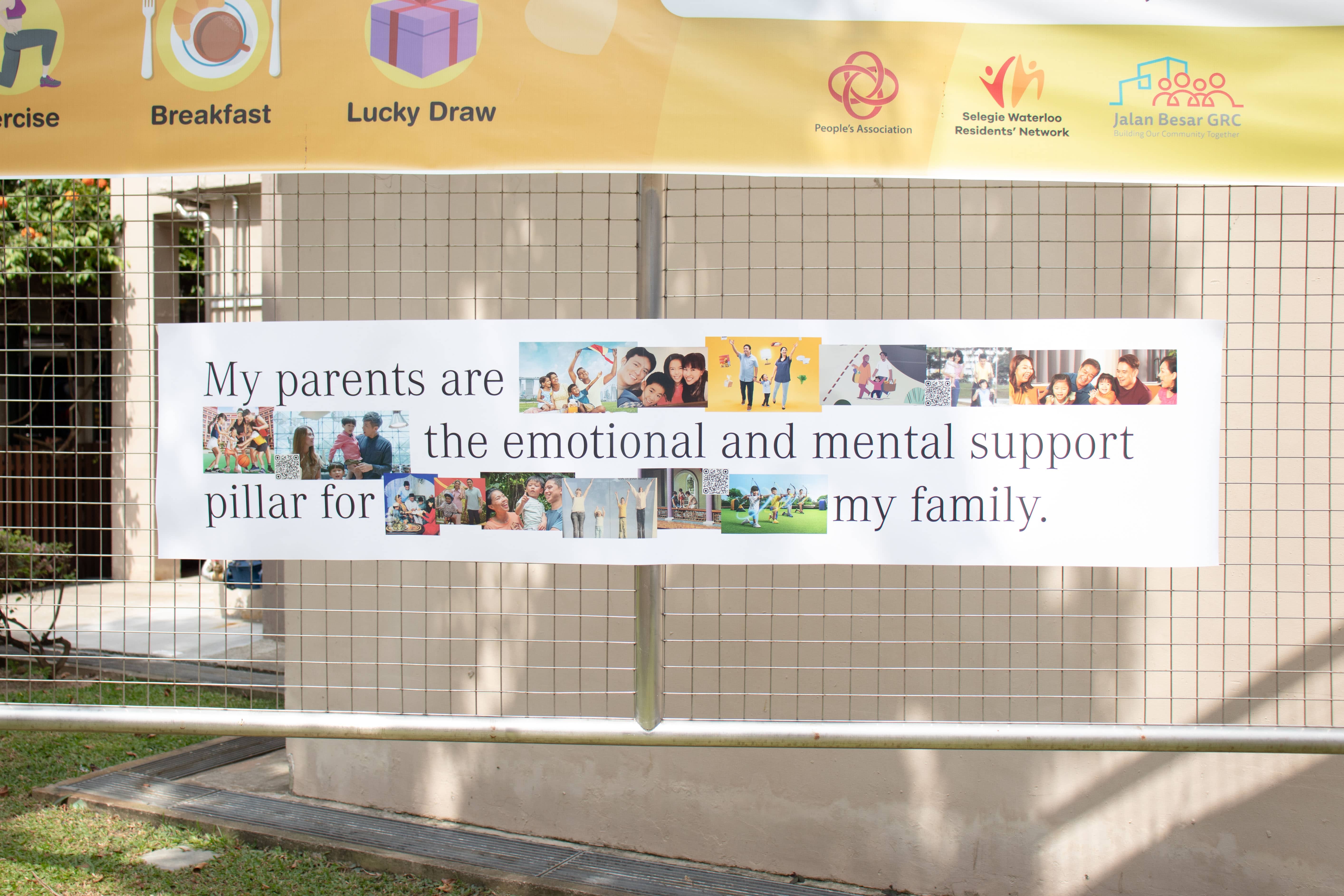
I Grew Up Fine focuses on the pro-family narrative dominating Singapore's media imagery, and how it impacts the self-perception of children in single-parent families. Lance’s project serves as a social commentary into the existing oversaturation of the ideal nuclear family as social building blocks of the nation. He also hopes that his project can be a platform of empowerment for single-parent children by highlighting the strengths from their experiences; a platform of recognition for diverse family structures by celebrating non-parental caregivers in the larger community.
Can you start off by explaining how you were drawn to this research topic and this specific target group?
I myself grew up in a single parent family. When I was young, the main issue was me realising that because of my surroundings and society itself, my family is not normal. Now that I'm an adult looking back, I realised that there are multiple factors that contributed to why I felt that way. That’s why I decided to research this topic, and also found out that there are many others who went through what I went through. Maybe some worse or some that actually had a pretty decent childhood. But I realised one common factor was that especially in Singapore, there is a template for what a normal family is.
In a way, the project not only helped me explain what I went through as a child, but also to look at things from the outside of why those things are the way they are today.
When you saw all these portrayals of what single parent families go through and you mentioned, especially a lot about the negative aspects, how did you feel? Were you able to relate to those portrayals? Or were you annoyed by them?
One thing about growing up is that I was mostly caught up within the issue
itself rather than actually noticing why these things affected me as a kid. Looking back, I realised
this is actually part of the problem that perpetuates this stigma in society. Media is a very
powerful communication tool. And the government does intentionally use it to portray what a template
family should be. You can activate it anywhere. In my findings, it even invades spaces such as
handicapped toilets.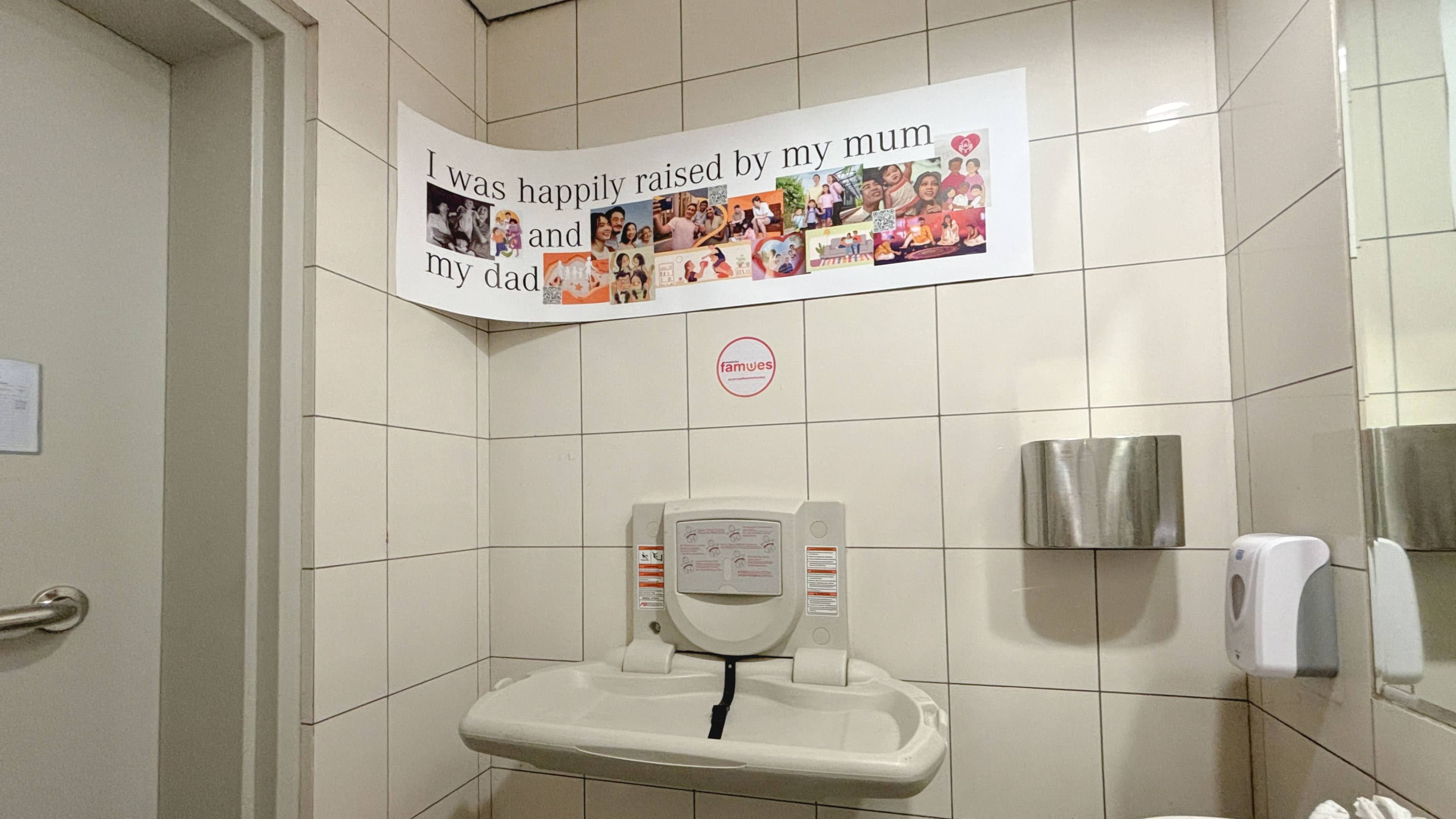 I just thought about
how it's really pervasive; you can't really escape this type of imagery in Singapore. I mean, in
Singapore, family is like the bedrock of our social fabric; understandably, why wouldn't they want
to continue championing for that?
I just thought about
how it's really pervasive; you can't really escape this type of imagery in Singapore. I mean, in
Singapore, family is like the bedrock of our social fabric; understandably, why wouldn't they want
to continue championing for that?
Can we talk about the different deliverables that you are working on?
I designed each deliverable so that they respond to a particular inquiry about
my project. The first is how we might highlight the inequalities faced by a single parent — children
and their families that are hidden by these pro-family narratives. The response to that is a series
of banners put up in places where these pro-family campaigns would usually manifest in our society,
such as different community spaces or private public spaces. The banner reads out as a positive
message about family at first; but if you were to scan the QR codes,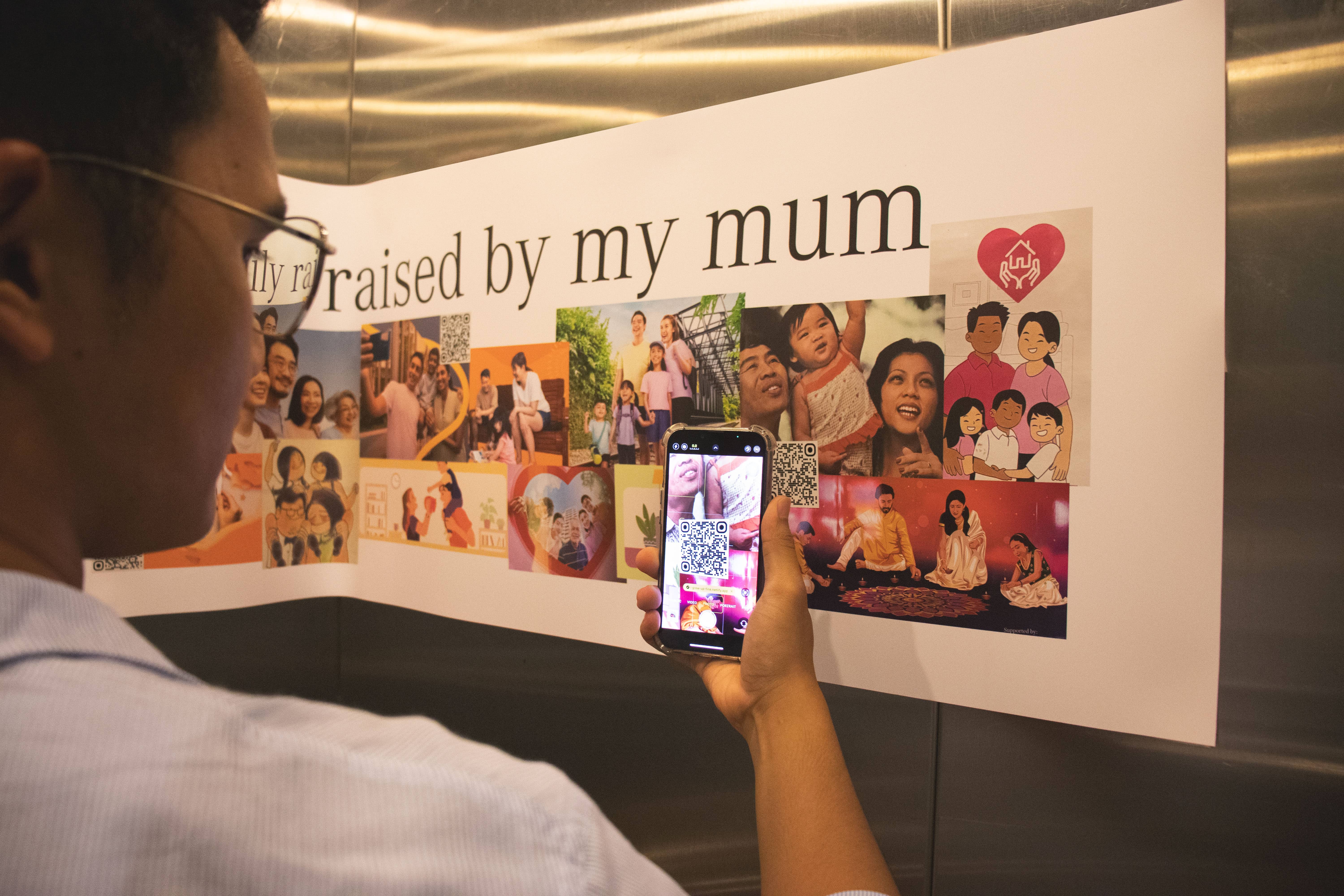 it leads to a microsite that fades out these images to show the actual message. It contains a
recount of a person who told me their story.
it leads to a microsite that fades out these images to show the actual message. It contains a
recount of a person who told me their story.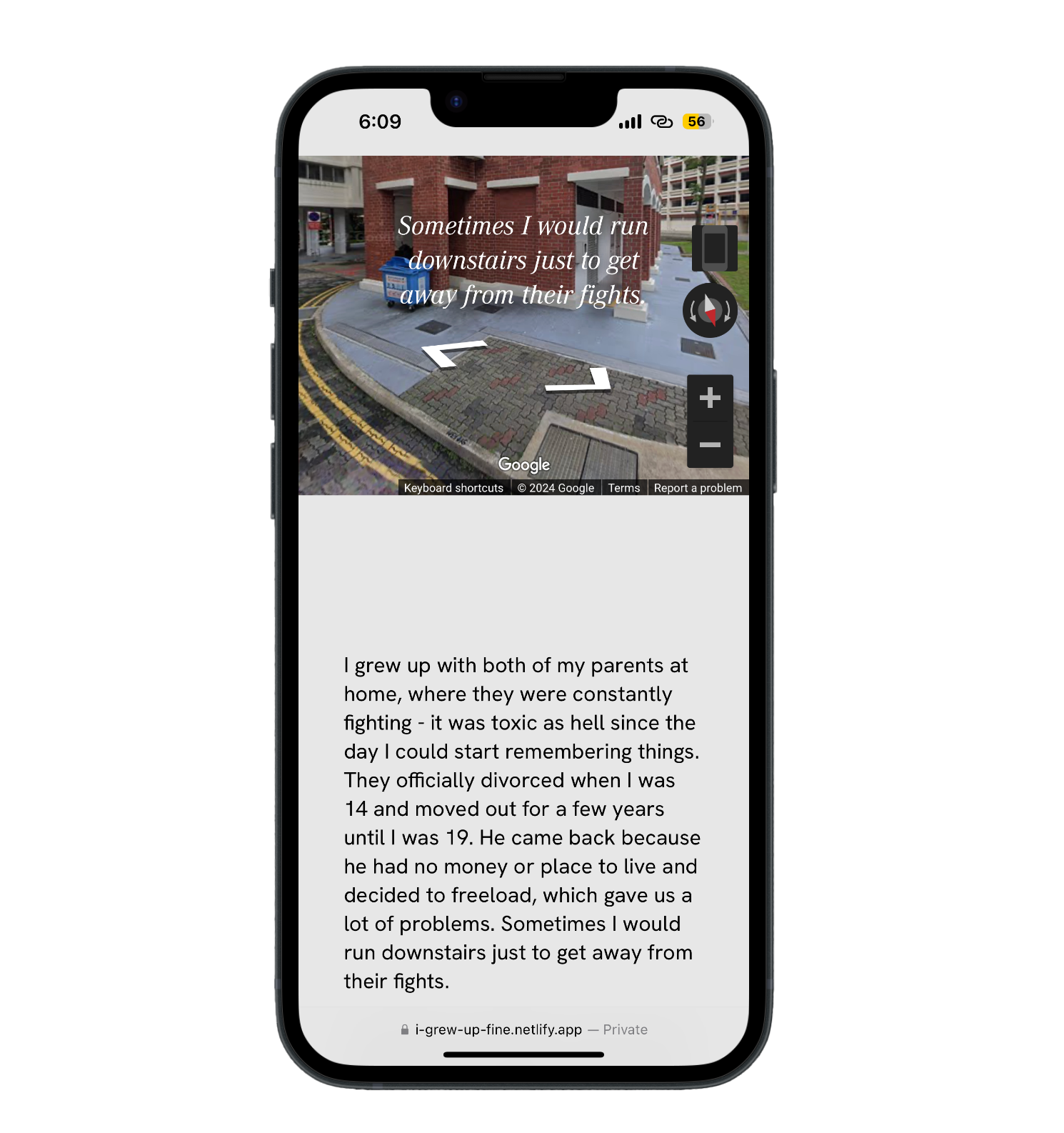 The goal of this is not
really to show sympathy for these people just because of what they went through, but to highlight
their strengths and their positive stories — that they grew up fine.
The goal of this is not
really to show sympathy for these people just because of what they went through, but to highlight
their strengths and their positive stories — that they grew up fine.
The second inquiry: how might we give single parent families a platform or an outlet to
share about their strengths? And also, how do we give appreciation to their parents or their
caregivers?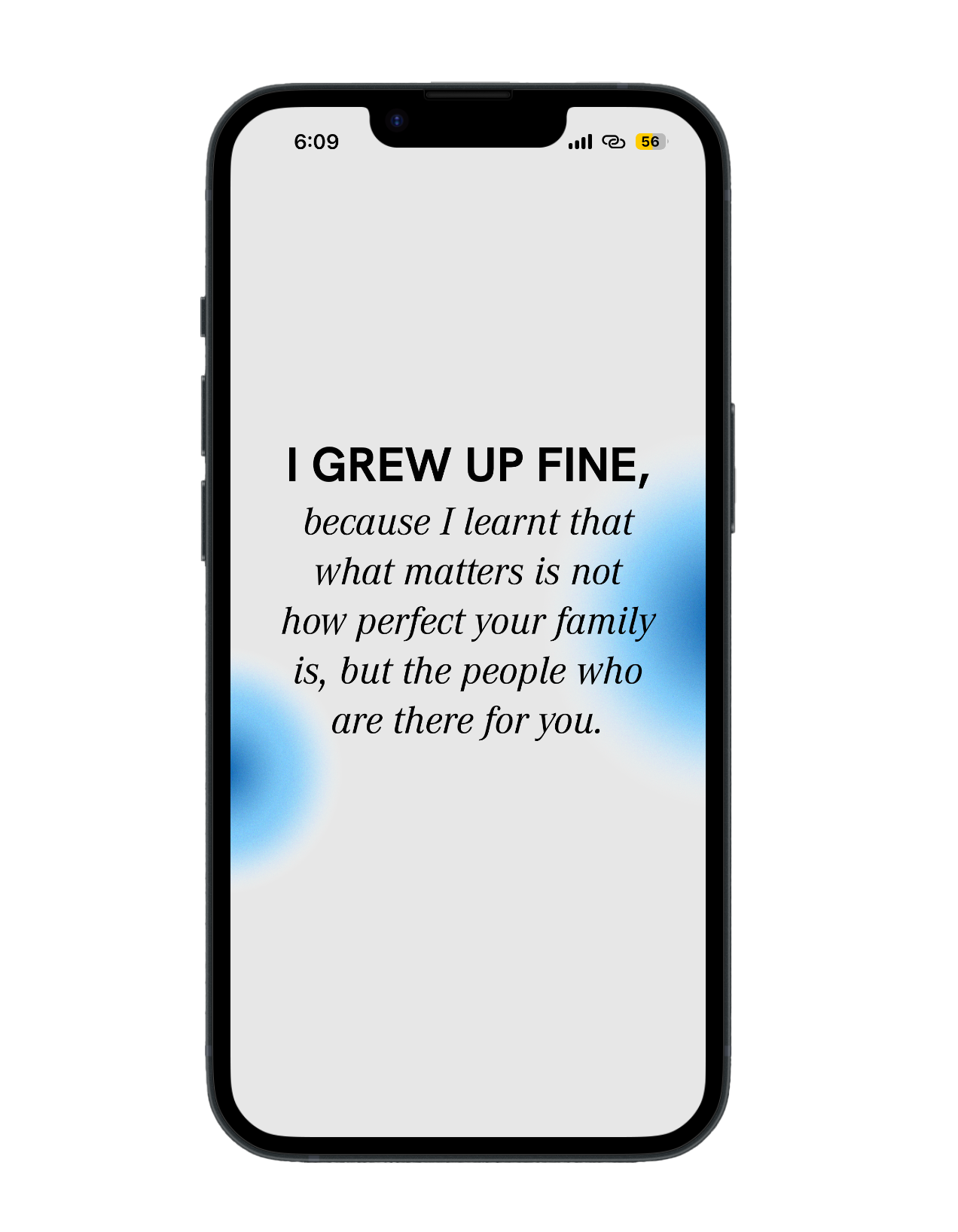 Another thing I realised late into my research was that not every
single parent family was only helmed by that one parent. There are other people taking care of the
child as well; these people could be grandparents, aunts and uncles, or even older siblings. I
thought those were people that actually played a huge part in people's upbringing as well.
Another thing I realised late into my research was that not every
single parent family was only helmed by that one parent. There are other people taking care of the
child as well; these people could be grandparents, aunts and uncles, or even older siblings. I
thought those were people that actually played a huge part in people's upbringing as well.
I wanted to respond by making this fictional service that drops these mailers into the homes of people who've grown up in these alternative families — similar to how we receive unsolicited government mailers. Each envelope contains an entire kit of ephemera and publications. So what looks like a very familiar-looking government letter is actually a positive government-issued one that champions for a more inclusive family in this fictional scenario in the year 2030. It is accompanied by a little booklet that highlights how single-parent children actually pick up life skills faster than others. For example, let's say for me growing up, I picked up cooking because maybe it was a survival skill and I slowly became better at it.
See Visualising Censorship, IT'S GIRL
See Food and the Migrant Diaspora, and Neither Here Nor There
See Bridging Spaces, and Neither Here Nor There